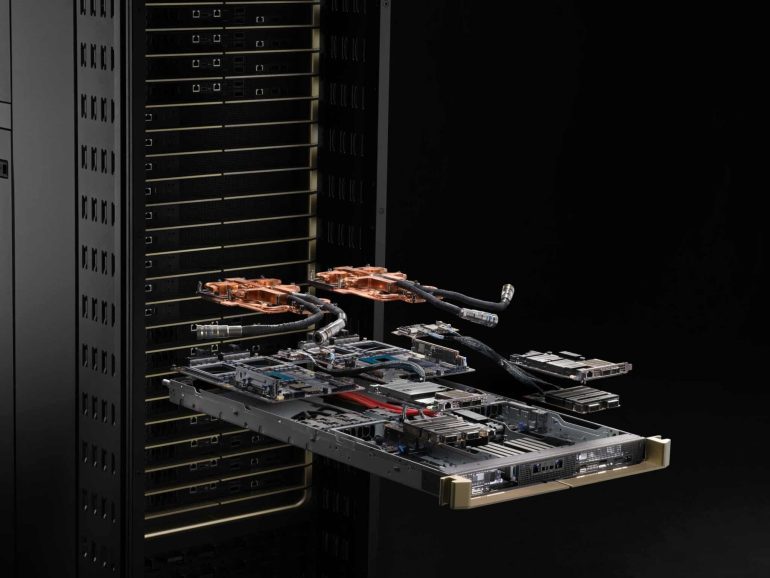- NVIDIA will showcase data center performance and energy efficiency advancements at Hot Chips 2024.
- The Blackwell platform integrates NVIDIA’s latest chips and software, driving the next generation of AI.
- GB200 NVL72, a liquid-cooled system, enhances LLM inference by up to 30x with low latency.
- NVLink technology ensures seamless GPU communication for high-performance AI tasks.
- The Quasar Quantization System accelerates AI computing while maintaining accuracy.
- NVIDIA is shifting towards liquid cooling in data centers, reducing power consumption and saving space.
- Participation in the COOLERCHIPS program emphasizes NVIDIA’s commitment to sustainable cooling technologies.
- AI is revolutionizing semiconductor design, with NVIDIA using AI models to automate and optimize design processes.
- Agent-based AI systems are being developed for more autonomous, efficient chip design.
Main AI News:
NVIDIA is poised to reveal significant advancements in data center performance and energy efficiency at Hot Chips 2024. This prominent conference for processor and system architects will feature four key presentations from NVIDIA, highlighting their Blackwell platform, liquid cooling technologies, and the use of AI in chip design.
The Blackwell platform, a fusion of NVIDIA’s cutting-edge chips and CUDA software, is designed to power the next generation of AI across industries. A highlight is the NVIDIA GB200 NVL72, a liquid-cooled system linking 72 Blackwell GPUs and 36 Grace CPUs, delivering up to 30x faster inference for large language models (LLMs) with ultra-low latency and high throughput. NVIDIA’s NVLink technology ensures seamless GPU communication, while the Quasar Quantization System accelerates AI computing, maintaining high accuracy in low-precision models.
NVIDIA is also advancing sustainable cooling solutions for data centers, moving away from traditional air cooling. Liquid cooling offers a more efficient, space-saving, and power-reducing alternative, enabling higher computing power in smaller footprints. NVIDIA’s participation in the U.S. Department of Energy’s COOLERCHIPS program underscores its commitment to leading-edge cooling technology. It utilizes the NVIDIA Omniverse platform to optimize energy use and cooling efficiency through digital twins.
AI is also transforming semiconductor design. Mark Ren, NVIDIA’s director of design automation research, will discuss AI models that enhance chip design by automating tasks, improving optimization, and boosting productivity. Ren will also explore agent-based AI systems that autonomously perform design tasks, interact with human designers, and learn from vast datasets, driving innovation in microprocessor design.
As NVIDIA prepares to share these groundbreaking developments at Hot Chips 2024, the company continues to redefine AI and data center computing, setting new benchmarks for performance, efficiency, and innovation. The conference, taking place from August 25-27 at Stanford University and online, is an essential event for those shaping the future of computing.
Conclusion:
NVIDIA’s innovations showcased at Hot Chips 2024 will signal a significant shift in the data center and AI markets. NVIDIA is setting a new industry standard by integrating advanced AI capabilities with enhanced energy efficiency and pioneering cooling technologies. This factor positions the company as a leader in AI-driven computing and sustainable data center infrastructure, likely driving increased demand for their solutions and influencing market trends towards more efficient and scalable computing architectures. The impact will be far-reaching, potentially reshaping how data centers are designed and operated globally.

